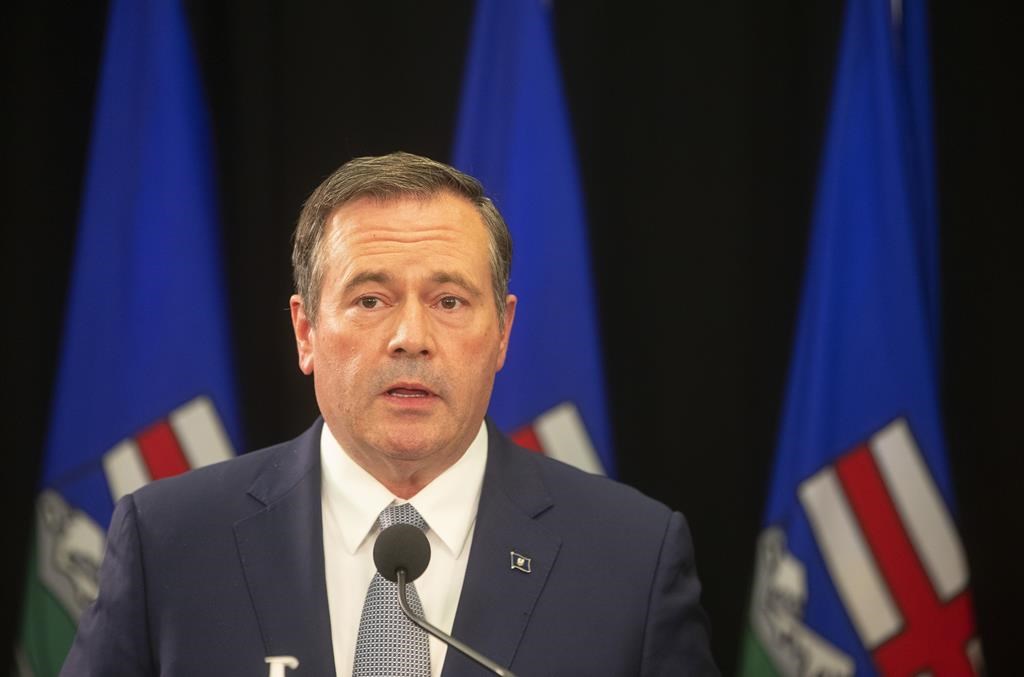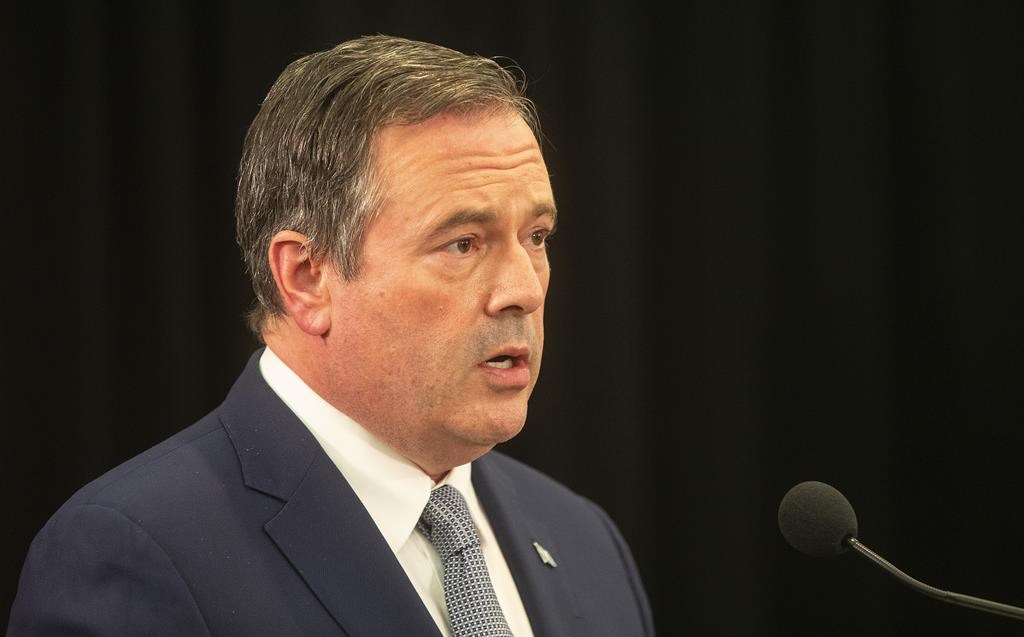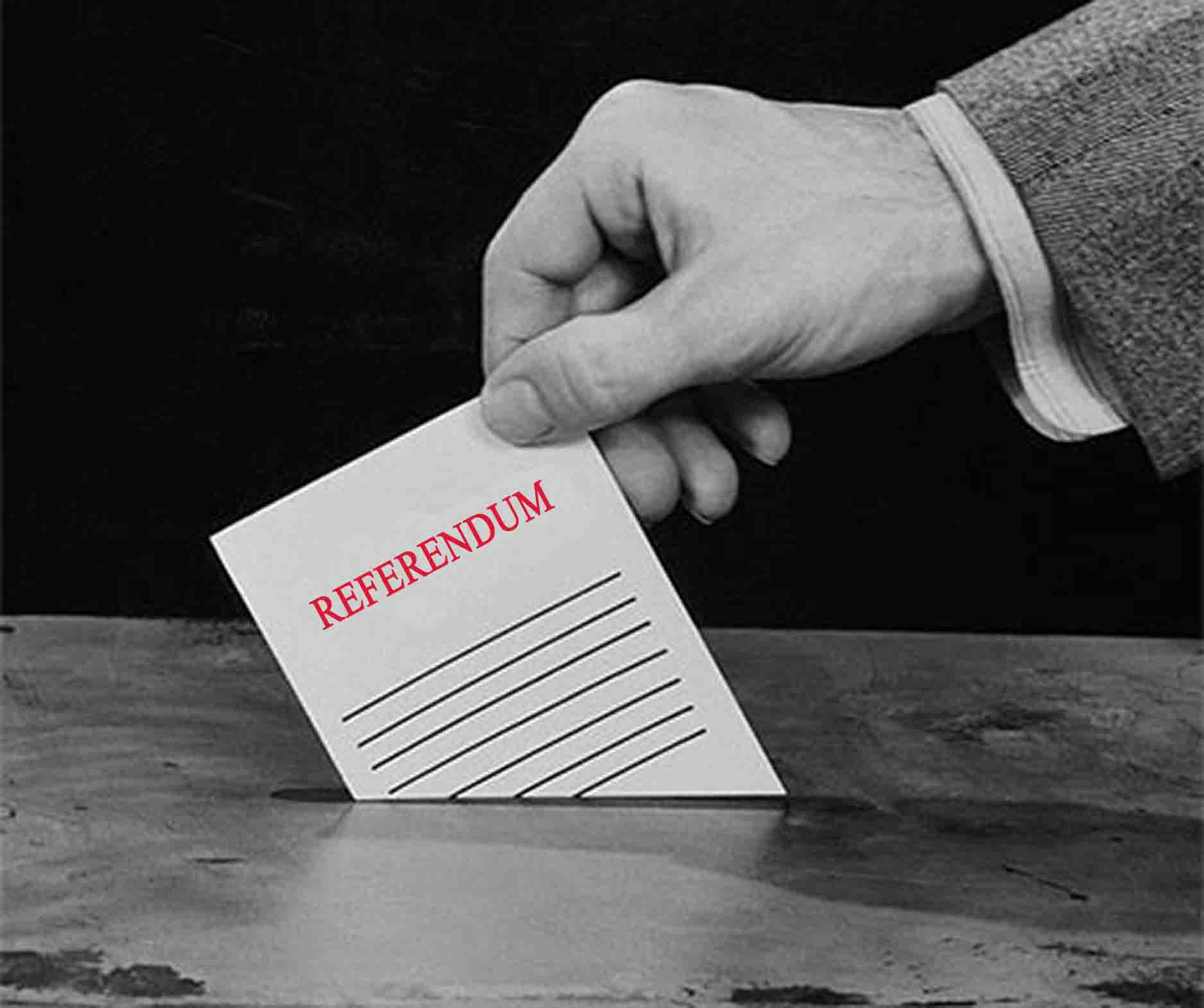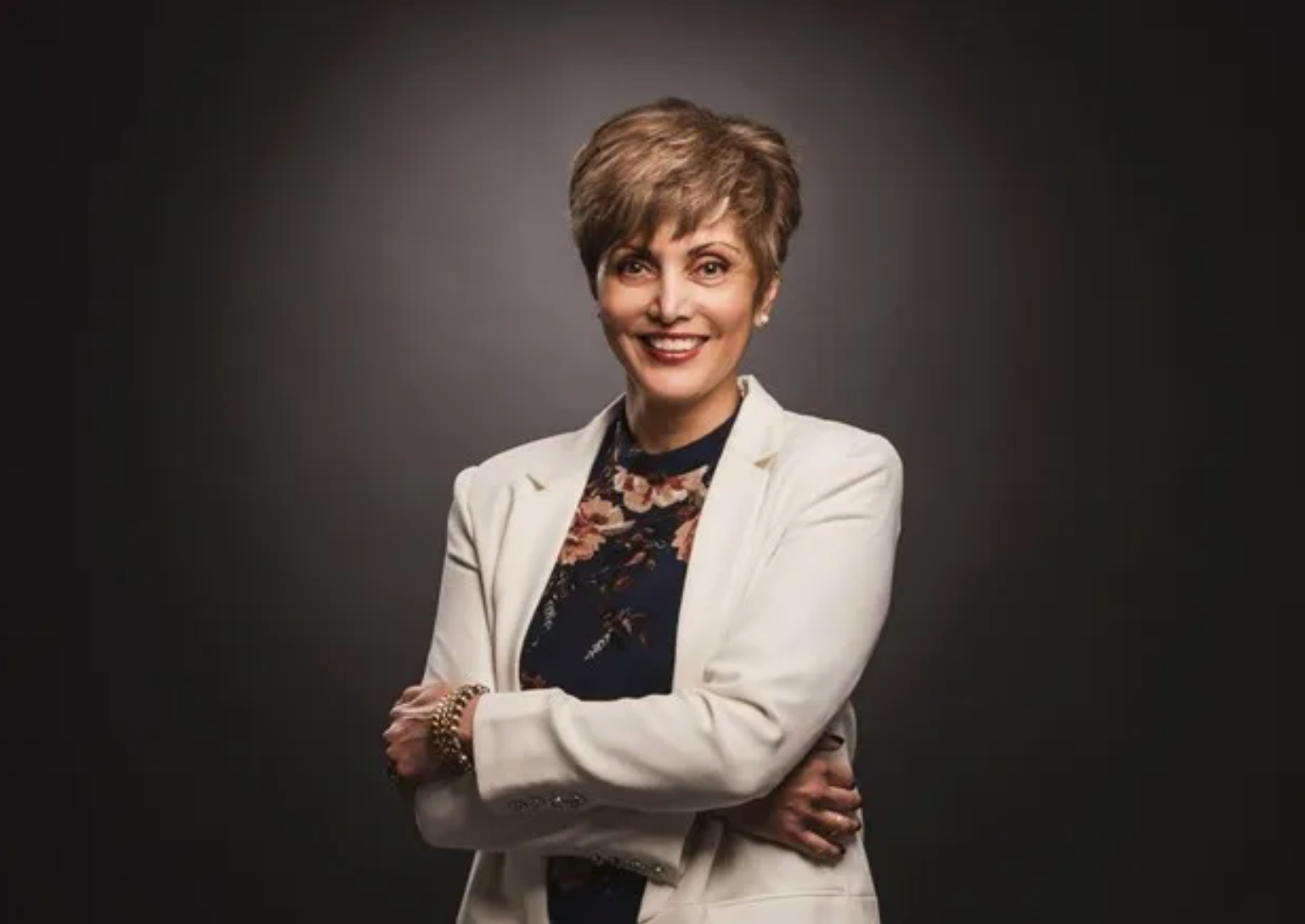This content is restricted to subscribers

The views, opinions and positions expressed by columnists and contributors are the author’s alone. They do not inherently or expressly reflect the views, opinions and/or positions of our publication.

This content is restricted to subscribers
The views, opinions and positions expressed by columnists and contributors are the author’s alone. They do not inherently or expressly reflect the views, opinions and/or positions of our publication.

The clear majority of Albertans want the principle of equalization removed from the constitution.
Well, maybe not a clear majority. Slightly under 62 per cent of the around 38 per cent of eligible Albertans who voted in the recent municipal election voted that equalization should be dumped.
And Premier Jason Kenney suggests the referendum wasn’t really about killing the principle of equalization. For one thing, no single province can amend the constitution so the vote was a moot point.
Kenney says the referendum was really a lever to start negotiations with Ottawa about a “fair deal” for Alberta. It was about the big picture of how Alberta has been hard done by because the province’s oil and gas economic engine is being hampered by Ottawa’s plans to reduce Canada’s carbon emissions.
The referendum question didn’t really get into all that subtext. It just said: “Should Section 36(2) of the Constitution Act, 1982 – Parliament and the government of Canada’s commitment to the principle of making equalization payments – be removed from the Constitution?”
Voters who looked it up would know that the offending section says the government of Canada is committed to making payments to the provinces so they can all provide comparable levels of public services at reasonably comparable levels of taxation.
Some voters actually are aggrieved that their tax dollars get transferred to other other regions of the country. According to the provincial government, Albertans’ wealth is being transferred to provinces like Quebec where the provincial government is trying to strangle the Alberta oil and gas economy by opposing pipelines.
The premier suggests the majority referendum vote forces Ottawa to come to the table and discuss a much broader set of issues. He plans to rail against tanker bans and the long defunct Northern Gateway Pipeline and the inability of Ottawa to bring Joe Biden to his knees over Keystone XL.
He may toss in a few other nagging irritants between the two levels of government while he’s at it. The federal child care program isn’t finding favour with the UCP for instance.
Kenney spent more time during his remarks on the referendum on stymied pipelines and federal environmental legislation than the principle of equalization. It’s pretty tough to argue that Canadians living in have-not provinces don’t deserve the same services of those in wealthy provinces.
It is possible to quibble about the formula used to work out equalization transfers as being unfair to Alberta. But Kenney was a minister in the Conservative government that instituted the current equalization formula, so that’s a no-go zone.
No matter how few Albertans may have voted in the referendum or how confused the intent of the entire exercise may have been, Kenney at last has a win in a year of many painful losses. Fresh negative polls hint that his tenure as premier is hanging by a thread. His own party is anxious to test the waters at a leadership review in the spring.
While Covid numbers have finally begun to decline, the abysmal overall case count, hospitalization and death toll in Alberta are a grim legacy for the UCP regime.
Canada’s decades old commitment to equalization is in no danger from Alberta’s flurry at the ballot box. For any change, Kenney would need seven provinces on side. Only Saskatchewan is likely to rally to Alberta’s side on this one.
It’s also unlikely that the federal Liberals are going to walk back their environmental priorities and carbon-cutting policies to unfetter Alberta’s fossil fuel industry.
But for a brief time, the referendum win allows Kenney to change the channel and get back to his comfort zone. Railing at Ottawa is a time-tested strategy to buoy the fortunes of Alberta politicians.
When dealing with Ottawa, Kenney will use the vote to sum up Alberta’s current political sentiment as “we’re mad as hell and we’re not going to take it anymore.”
And for domestic consumption, the premier can site the referendum as proving he can still deliver the vote.
But more Albertans actually cast a ballot in provincial elections. And choosing a provincial government is more clear cut than messing with the Canadian Constitution.
The views, opinions and positions expressed by columnists and contributors are the author’s alone. They do not inherently or expressly reflect the views, opinions and/or positions of our publication.

The province-wide results will not be officially announced until October 26.
But it was clear from municipal reports that on October 18, 2021 a majority of Alberta voters said yes to the question : “Should section 36(2) of the Constitution Act, 1982 — Parliament and the government of Canada’s commitment to the principle of making equalization payments — be removed from the constitution?”
According to the Alberta government website: “A ‘yes’ vote means that Albertans are calling upon the federal government and other provinces to enter into discussions on a potential amendment to the Constitution of Canada in respect of equalization.”
Meanwhile, not long before the Alberta vote, on October 7, 2021 a committee of the Quebec National Assembly finished nine days of public hearings on the provincial government’s Bill 96.
This proposes that the government of Quebec unilaterally amend the Constitution of Canada to declare Quebec a nation, with French as its sole official language.
Back when Bill 96 was introduced this past spring, Liberal PM Justin Trudeau noted how the Canadian House of Commons had already recognized that “the Québécois form a nation within a united Canada,” in a late 2006 motion tabled by Conservative PM Stephen Harper.
Yet former prime minister Jean Chrétien’s chief of staff, Eddie Goldenberg, has expressed grave concerns about Bill 96. In a late May 2021 opinion piece he argued: “By allowing Quebec to change the Constitution, Trudeau is opening up a Pandora’s box.”
The box has now been opened wider by the Albertans who voted against federal equalization payments to some provinces, to ensure Canada-wide minimum standards of public services.
Canadian politics today involves still more issues with strong constitutional implications. One example is Indigenous policy — in the current limelight through the first Truth and Reconciliation Day this past September 30.
Another broad constitutional issue cluster looming quietly in the Canadian air as the autumn leaves of 2021 start to fall could be called “Democratic reform and the Monarchy.”
The same October 18 elections in which Alberta voters pronounced on the current federal constitutional commitment to provincial equalization also offered an opportunity for voters to “select 3 Senate nominees who may be summoned to the Senate of Canada, to fill a vacancy or vacancies relating to Alberta.”
This raises the ancient constitutional question of the still unreformed Senate of Canada (notwithstanding the recent related tinkering of both PM Harper and PM Trudeau).
At this point Canadian political leaders addicted to Eddie Goldenberg’s advice against opening up the Pandora’s box of the Constitution of Canada really start to raise their eyebrows.
They especially remember the late 1980s and early 1990s, when federal and provincial (and ultimately even Indigenous) leaders actually managed to agree on a diverse constitutional reform package, only to have their hard work rejected in a popular referendum in the fall of 1992.
In the fall of 2021, almost 30 years later, the Alberta equalization referendum and Bill 96 in Quebec at least quietly raise the prospect that it is time to reassess the Canadian constitutional lessons of the late 1980s and early 1990s.
The deeper long-term message may not be that constitutional change of any serious sort is all but impossible in Canada, and constitutional debate is best avoided.
In fact there remain a number of serious Canadian constitutional issues. Ultimately doing something sensible about them is important for the country’s long-term future.
What happened in 1992 is that hard-won agreement among federal and provincial governments (and Indigenous leaders) was defeated by the Canadian people. In retrospect it is highly arguable that this had a lot to do with the “top down” process of “executive federalism” involved.
The fact that the process failed as a result of a popular referendum similarly suggests that some more “bottom up” approach could stand a much better chance of success.
In any case, in 2021 two provincial governments are arguably pointing to a growing need for some new constitutional debate in Canada.
Other governments may not want to wade into this problematic pond any time soon. But a debate from below or the “bottom up” — somehow involving the Canadian people from the beginning — could get the ball rolling more constructively than 30 years ago.
A few big questions do remain. Is this kind of debate possible in Canada today? And if it is, just what would it involve, and how might it unfold in a new digital age?
The views, opinions and positions expressed by columnists and contributors are the author’s alone. They do not inherently or expressly reflect the views, opinions and/or positions of our publication.

Alberta’s new big city mayors aren’t much different from Alberta’s old big city mayors.
And that is not particularly good news for Premier Jason Kenney.
Kenney already has phoned Calgary Mayor Jyoti Gondek and Edmonton Mayor Amerjeet Sohi, presumably with the expected congratulations and assurances he is willing to play nice.
Municipal politics aren’t partisan, Kenney argued after the vote.
“Our government will work with all of the mayors and councillors elected to try to move in the same direction, obviously in addressing the COVID crisis, but in economic growth and recovery emerging from it.”
The mayors-elect are also saying some hopeful things about resetting the acrimonious relationship between city and province.
But already Gondek has suggested if the province can’t forge a day care agreement with Ottawa she is willing to try working directly with the feds on behalf of Calgary.
And despite his reputation as a consensus builder, Sohi’s baggage as a former Liberal cabinet minister must colour the relationship with Kenney.
Both new mayors were the clearly favoured candidates of predecessors Naheed Nenshi and Don Iveson, who both butted heads in public with Kenney over issues including the province’s pandemic response and the need for a big city charter for Alberta.
Gondek and Sohi defeated prominent right wing opponents Jeromy Farkas in Calgary and Mike Nickel in Edmonton. Nickel and Farkas were more aligned with the provincial government on fiscal policy, particularly the need to keep a tight rein on spending.
Gondek and Sohi campaigned on tackling issues which bleed significantly into provincial jurisdiction. Gondek has come out hard on climate change and the need to move beyond the oil and gas economy. Sohi wants to address inequity in terms of racism and homelessness.
Kenney probably hoped to have soul mates in the mayors chairs had Nickel and Farkas won. But the premier, already under the gun because of his brutal polls and poor Covid record, is not likely to get an easy ride from the ultimate victors.
The municipal vote also suggests that UCP MLAs may want to be door knocking in a hurry even though a provincial election is more than a year away.
Normally name recognition is an indicator of electability. Incumbents in theory have a leg up before the race starts. But in the vote this week a number of incumbents lost to newcomers both in the cities and in some smaller municipalities.
In Edmonton, four councillors failed to get re-elected, including three who supported Nickel in many votes. The shift to a more overall progressive council just further reflects how out of touch the UCP is with urban Alberta.
The two big city councils are now fresher, younger and more diverse. If these new teams jell, the provincial government, which has been trying to chip away at municipal powers and funding, will have an even rougher time asserting itself.
The one brightish spot out of the vote this week for Kenney was the equalization referendum. Although final results won’t be known until Oct. 26, it appears Albertans voted in favour of pulling equalization out of the Canadian constitution.
Alberta won’t be able to reach the bar of support from other provinces required for a constitutional change. But Kenney has made it plain he wanted a referendum win to exert some leverage when dealing wth Ottawa on the issue.
The leverage is a bit tepid, however. It appears the final result may hover around the 60 per cent mark, not an overwhelming win for the UCP, given the amount of time Kenney spends banging the drum that Alberta needs a “fair deal” with the rest of Canada.
The election this week underlined the big-picture trends in the Alberta political scene. The cities are becoming more progressive, leaning away from single-focus tax-cutting politicians. And the appetite for bare knuckle brawling wth central Canada may be waning.
The views, opinions and positions expressed by columnists and contributors are the author’s alone. They do not inherently or expressly reflect the views, opinions and/or positions of our publication.